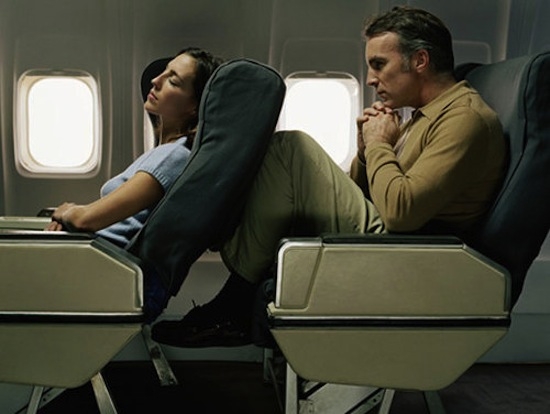 The dry, recycled cabin air irritates mucous membranes and causes painful sinus-cavity pressure to build. This is a tremendous annoyance, particularly to people with colds, sinus infections and chronic sinus conditions.
The dry, recycled cabin air irritates mucous membranes and causes painful sinus-cavity pressure to build. This is a tremendous annoyance, particularly to people with colds, sinus infections and chronic sinus conditions.
Of course, it’s best to avoid air travel when you’re sick, but if you can’t do so, or you’re prone to sinus problems, moisten your nasal passages with a saline spray. Also, although pressurized for comfort, an airplane still has a pressure level equivalent to a Rocky Mountain town.
This can cause fatigue, body aches, headaches and bloating. Adequate hydration is a good way to minimize these problems. Finally, that extreme pressure and popping in your ears during ascent and descent is related to both the change in pressure and air movement for equalization in the ear structures. Chewing gum, yawning and moving your lower jaw forward allow the movement of air to take place and avoid sinus “squeeze.”
Crowds and infection
So, the guy in seat 24B is coughing and sneezing incessantly, and you’re sitting in 24C! There are a few things you can do to decrease your chances of contracting viral and other illnesses from fellow air passengers. First, try politely requesting a move to another seat. Whether you get to move or not, wash regularly with antibacterial gel (not the lavatory water — it too can be contaminated). Armrests, tray tables and seat pockets are filled with germs. Again, antibacterial gel (brought aboard following the TSA’s 3-1-1 guidelines, of course) can help. Note that, although several over-the-counter medications claim to nip colds in the bud, no medical studies have definitively shown them to be effective.
Motion sickness
Motion sickness, although not unique to air travel, will make your trip miserable. Some people are more sensitive to it than others (you know who you are!) and can take preventative measures even before the flight. Choose seats in the middle of the plane, where movement is less pronounced. Consult your physician about over-the-counter and prescription medications (the behind-the-ear patch, for example) that help prevent motion sickness. And, again, stay hydrated and avoid alcohol and caffeine before and during a flight.
Jet lag
Traversing time zones can be difficult, even for seasoned travelers. There are a few ways to limit the malaise caused by disturbing the sleep cycle. Drink plenty of water and avoid alcohol and caffeine (we really can’t say this enough). Get as much rest as possible prior to your flight, and eat light meals during it. At your destination, re-synchronize your body by getting as much sunlight during the day as possible and by getting at least four hours of sleep at night. Sleep aids, including the supplement melatonin (which hasn’t been fully studied), should only be used after consulting your physician.
 Dzobak Volodymyr
РОЗДУМИ ПРО НАДВАЖЛИВЕ або ЧОМУ НАШІ ОЛІГАРХИ СТАЛИ МОГИЛЬЩИКАМИ НИНІШНЬОЇ УКРАЇНИ
Dzobak Volodymyr
РОЗДУМИ ПРО НАДВАЖЛИВЕ або ЧОМУ НАШІ ОЛІГАРХИ СТАЛИ МОГИЛЬЩИКАМИ НИНІШНЬОЇ УКРАЇНИ



